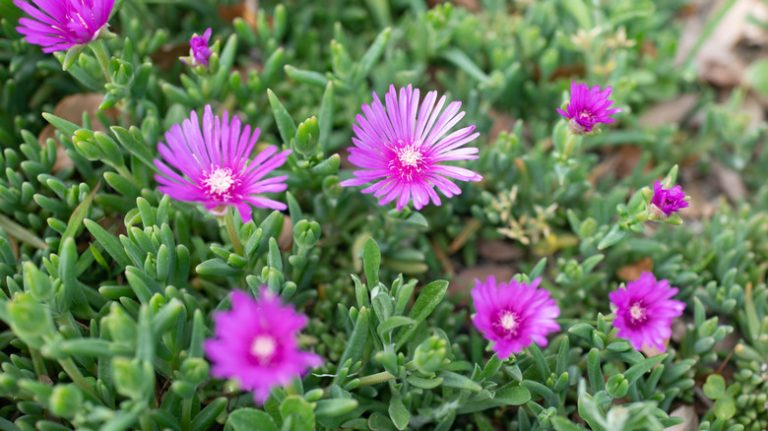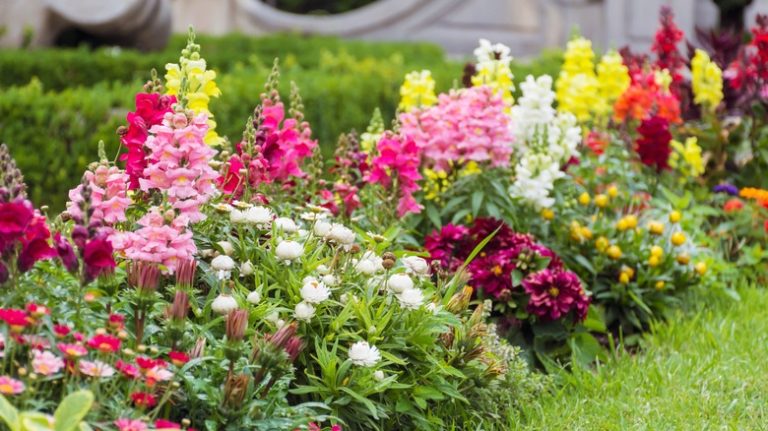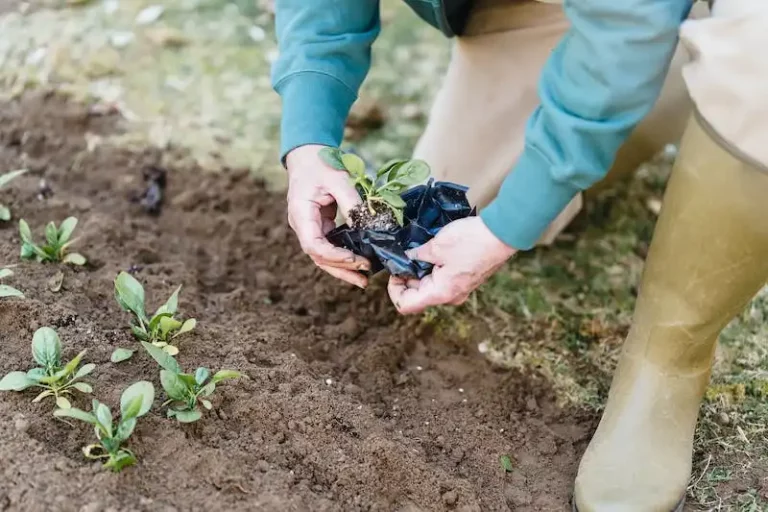Rose plants are popular for a reason. They grow fragrant, gorgeous blooms that are a sight to behold — but they risk being overtaken by weeds when not maintained well. Not only are weeds unsightly, but they also compete with the flowering perennials for essential nutrients and sunlight, harming their growth and diminishing their beauty. They take over bare soils around the roses, while fertilization — a critical cultural habit to grow stunning roses — will help the weeds flourish. They harbor pests like thrips and grasshoppers, too. Fortunately, mulching works like a charm in suppressing weeds, as does pre-herbicide control if you’re willing to use chemicals.
If the weeds have already taken over, wear gloves and pull them out. Before doing so, water the soil deeply, down to 12 inches, to help easily tug out the invasive growth. Target the weeds when young, as they won’t be rooted deeply, enabling easy removal. A weekly maintenance schedule should generally nip the problem in its early stages. But if the weedy grasses have grown larger, carefully hold them at their base after loosening the soil around their root balls and twist them slowly out of the soil. Ensure the taproots don’t snap, or the weeds will grow back. Repeat the process until they quit resprouting. Mulch the soil afterward.
Mulch the soil to keep weeds out
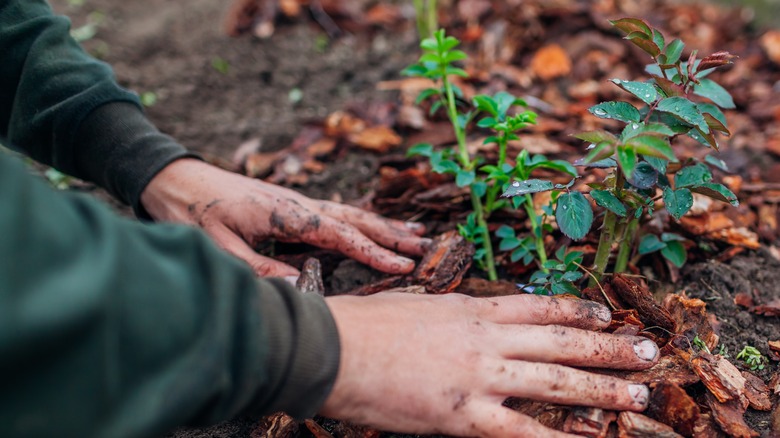
The least harmful way to kill weeds is to spread mulch across your rose plantings’ width and base. It’ll also improve the soil’s water retention while releasing nutrients through decomposition. Before carrying out the task, weed out longstanding pesky growth with a Hori-Hori knife or other hand tool. Avoid hoes, as they may hurt your shallow-rooted roses instead. Next, apply a 2- to 3-inch-thick layer of organic mulches like bark (or wood chips), compost, or sawdust. You might want to avoid using wood chips if your area is prone to pests, like carpenter ants, termites, snails, and slugs, that seek timber for shelter.
Alternatively, deal with perennial grassy or broadleaf weeds with sheet or lasagna composting. Here, multiple newspapers or pieces of cardboard are placed on the ground after removing the existing mulch to smother the weeds. Ensure they overlap sufficiently so the weeds don’t grow out the sides. Soak the sheets in water and layer them with composted manure. Further, top up with a 2- to 4-inch thick mulch layer. They’ll break down over time to provide beneficial microbes and nutrients to the soil. You can also use geotextiles, including woven landscape fabrics that allow water permeation but won’t enrich the soil.
Herbicide control and other cultural practices
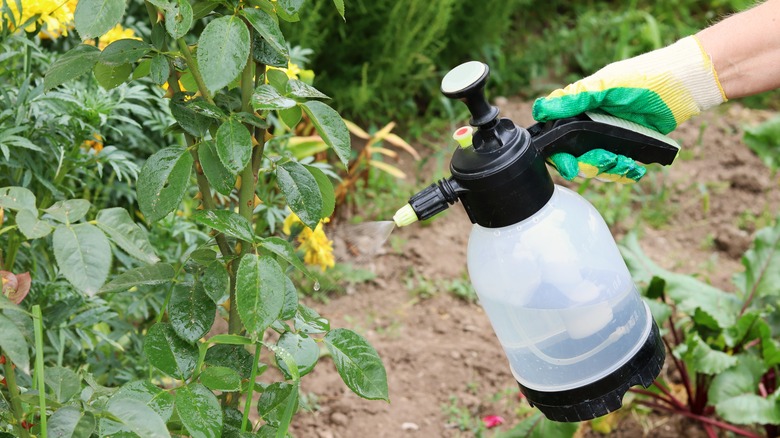
You might have to resort to herbicides if the manual removal and mulch combination fails to deter weeds. Usually, most gardeners default to a natural, DIY solution consisting of 1 quart of vinegar and ¼ cup of salt. A mild surfactant, such as 1 tablespoon of dish soap or yucca extract, is added for better binding. Although household vinegar (under 5% acetic acid concentration) works, herbicidal vinegar with over 20% ethanoic acid shows stronger results. These organic herbicides dry out and eliminate over 90% of the weeds on contact within a day, provided they’ve yet to seed out. You’ll need to reapply every two weeks when dealing with larger weeds. Since they’re non-discriminatory killers, it’s best not to get them on desirable foliage, or you can place a spray barrier around the weeds to limit spray drift.
Avoid using Roundup around rose plantings as it can get absorbed into the leaves and stems, leaving them stunted. As for pre-emergence herbicides, look for those containing pendimethalin or oryzalin, as they suppress a wide variety of persistent weeds, including pigweed, purslane, prostrate spurge, and knotweed. But check with your extension first, as some jurisdictions restrict their use. Going forward, stick to drip irrigation, as overwatering roses can stimulate weed growth.

